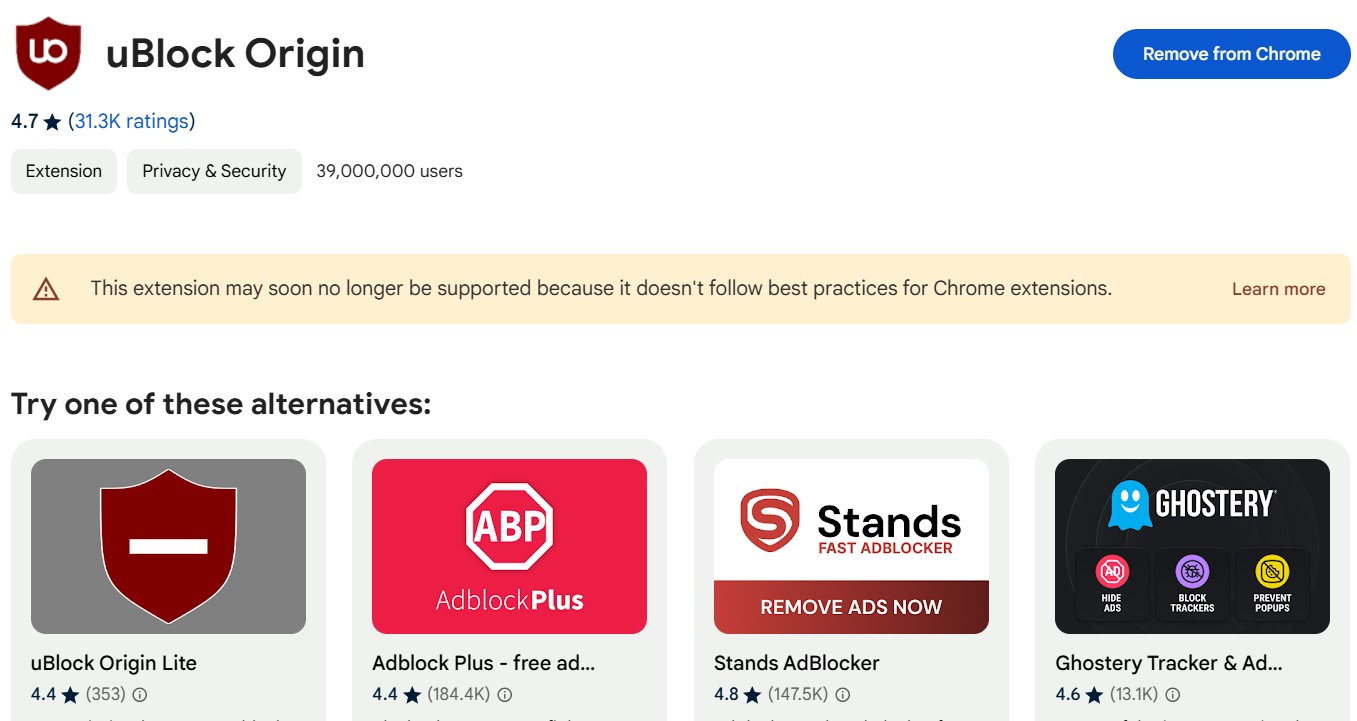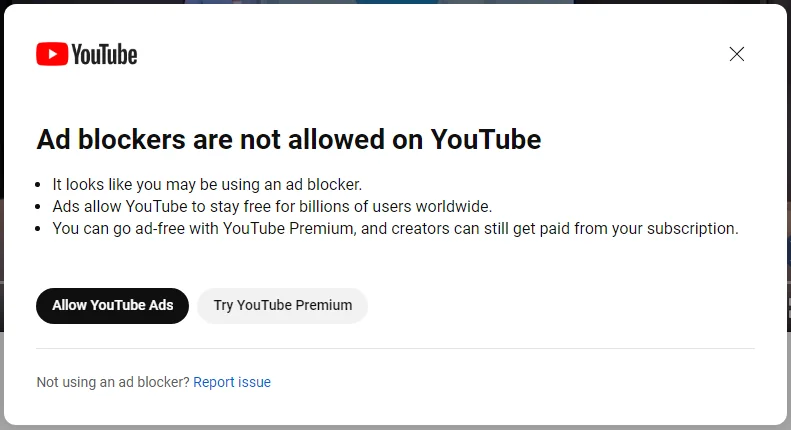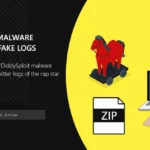uBlock Origin, one of the most popular ad blocking extensions for Google Chrome, now falls out of favor of Google. Tech giant has placed the corresponding notification on the plugin’s listing in Chrome Web Store, saying it does not follow the best practices for extensions. Although the company did not share any reasoning yet, quite a few people online suggest that the reason is the ongoing Google battle against ad blockers.
uBlock Origin Gets Removed from Chrome Web Store
On October 13, 2024 the listing of uBlock Origin extension in Chrome Web Store got the additional line on top, saying that it will soon lose support “because it doesn’t follow best practices for Chrome extensions”. Translating from the bureaucratic language, Google may soon remove the plugin from the store, for reasons that are yet to be disclosed by the company. The link provided in the notice leads to a boilerplate page saying about removing extensions that do not follow the best practices on privacy and security. Also, attentive users have noticed this exact notification in the Extensions tab of the browsers almost two monts ago, back in August 2024.

uBlock Origin is among the most popular ad blocking plugins, with a user base of over 39 million. It has proven itself effective on the majority of websites, including YouTube. The latter has become a tough nut for some of the ad blockers after the recent changes to the site, and became one of the reasons why the plugin had experienced a massive influx of users.
And this capability, along with its overall high efficiency has probably become the reason why Google decided to kick it out of the Web Store. At least, this is what users suspect is a reason. The version looks especially trustworthy if we have a look at the company’s activities targeted at combating ad blocking on their platforms. This touches all browser extensions dedicated to making the ads disappear, not only uBlock Origin.
Google War Against Ad Blockers Is Unrolling
All the situation is likely a part of covert campaign that Google pulls out to fight ad blocking plugins. Sure, the restrictions on browser extensions, specifically on which website content and how they can work with, have quite significant reasoning behind it. Phishing browser plugins, that remain a rather widespread kind of in-browser malware, use the absence of such restrictions in Manifest v2 to collect user input from different elements on the website. Same element scanning and interaction, though with a different outcome, is used by ad blockers.
And that is where the main problem stems from. As Web Manifest v3 gets unrolled, Google will start removing or otherwise disrupting the functionality of quite a few anti-advertising browser extensions. Once again, this perfectly aligns with the company’s recent strategy on making ads impossible to remove, parcularly from one of their main advertising platforms – YouTube. It started detecting the active ad blocker plugin and displaying the corresponding message to the user, saying that only a few will be available to watch ads-free.

Main relief here is the fact that not all browsers are forced to comply with this new set of rules. Nonetheless, Google holds a monopoly on the web browser market, thus breaking key mechanics that allow ad blockers to work can and will impact the majority of Internet users. And that is what shakes the community so much.
In my personal opinion, online advertising is not a bad thing in its essence. Brands need to show themselves, and Google (along with other ad providers) let them do so. But the way these promotions are stuffed into the content does not boost the user experience. Even more so, considering massive amounts of ads from untrustworthy sites, and even outright scams appearing in Google Ads, disabling ad blockers will create a clear threat to user safety.
Can I Use uBlock Origin in the Future?
Sure enough, you can. Unless you have it installed in the browser, it will function just fine, as it receives updates independently from Chrome Web Store. But should you lose this plugin in any way (say, by resetting the browser or accidentally deleting it), it will be gone for good. Some may suggest getting an installer from a third party, but such manipulations are a risky idea at its very core, with huge possibilities for impersonation attacks and malware distribution.
There are alternatives though, that will keep functioning even after and even if uBlock gets deleted. uBlock Origin Lite, an extension from the same developer, is designed to comply with Manifest v3, and is still capable of stopping the ad storm. Still, its efficiency is significantly lower, with the main impact of changes being noticeable on how fast the plugin removes advertisements from pages. Also, there’s no guarantee that it will work fine with the main concern of quite a few people, YouTube.
A much less complicated way of solving the issue will be switching to a different web browser, the one which does not take Manifest v3 into account. Among the obvious choices are Firefox and Brave, as they are not even based off of Chromium core, meaning there are not ties to Google whatsoever. And the majority of browser extensions are present here, too, with the similarly convenient ways to install them.





